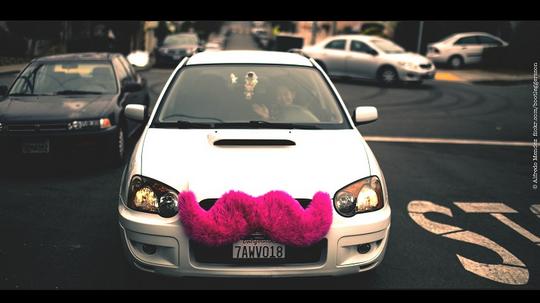

Lyft has raised another $150 million, including $100 million from noted investor Carl Icahn. The new funding is an extension of the $530 million round the company raised back in March led by Japanese e-commerce star Rakuten at a valuation of $2.5 billion. The new money is another sign that the ongoing Uber vs. Lyft ridesharing battle is far from over.
"I believe that ridesharing is poised to become a fundamental component of our transportation infrastructure," Icahn said in a statement. "The company's revenue growth to date has been extremely compelling, and increasing urbanization over the next 5 to 10 years should enable the company to maintain that trajectory."
As the rivalry between Uber and Lyft continues, Uber's staggering $41 billion valuation can make the fight seem very uneven. It's more than 16 times the value of Lyft and Uber operates in about quadruple the number of cities while bringing in a dozen times the revenue. But there are plenty of reasons to think that Lyft's future is far from bleak, even apart from the new money.
The fact is, as Icahn suggested, the ridesharing market itself is enormous—and poised to grow even more over the next few years. No matter how much Uber might want to be the only option available to people, there are plenty of ways for another company like Lyft or Sidecar or others to vigorously compete with—and even beat—Uber in certain geographies (even if they might have trouble doing so on a global scale). Lyft has suggested that there's a more than $2.25 trillion personal transportation market just in the U.S.
Attracting drivers
Bringing in new drivers is arguably just as important as bringing in passengers, for both companies. Uber may have plans for a whole platform to hire tens of thousands of people, but if Lyft can lure the best drivers in certain areas, it could lead to a real battle for driver loyalty. Lyft has been trying out a number of perks like healthcare, car maintenance discounts and bonuses to attract and keep drivers, any of which may work to keep its driver cadre strong. Again, Lyft might not win all or even most of those fights, but if it can win a few of them, it could come to dominate certain markets ahead of Uber.
In a statement, Lyft president John Zimmer said the company is "thrilled to partner with Carl during this exciting period in Lyft's growth as we work to rebuild the U.S. transportation infrastructure and reconnect local communities."
"There is room for two."
"With this additional investment, we remain focused on deepening our U.S. footprint, continuing to lead with product innovation and providing the best possible experience for drivers and passengers," Zimmer said.
Lyft may be the underdog, but that doesn't mean it can't make money. In fact, Lyft's current position, relative to Uber, is apparently part of what attracted Icahn to the company and why he decided to invest in it, according to an interview he did with the Wall Street Journal.
"If you look at the way the market evaluates Uber and then look at the valuation of Lyft—Lyft is a tremendous bargain," Icahn told WSJ. "There is room for two."




